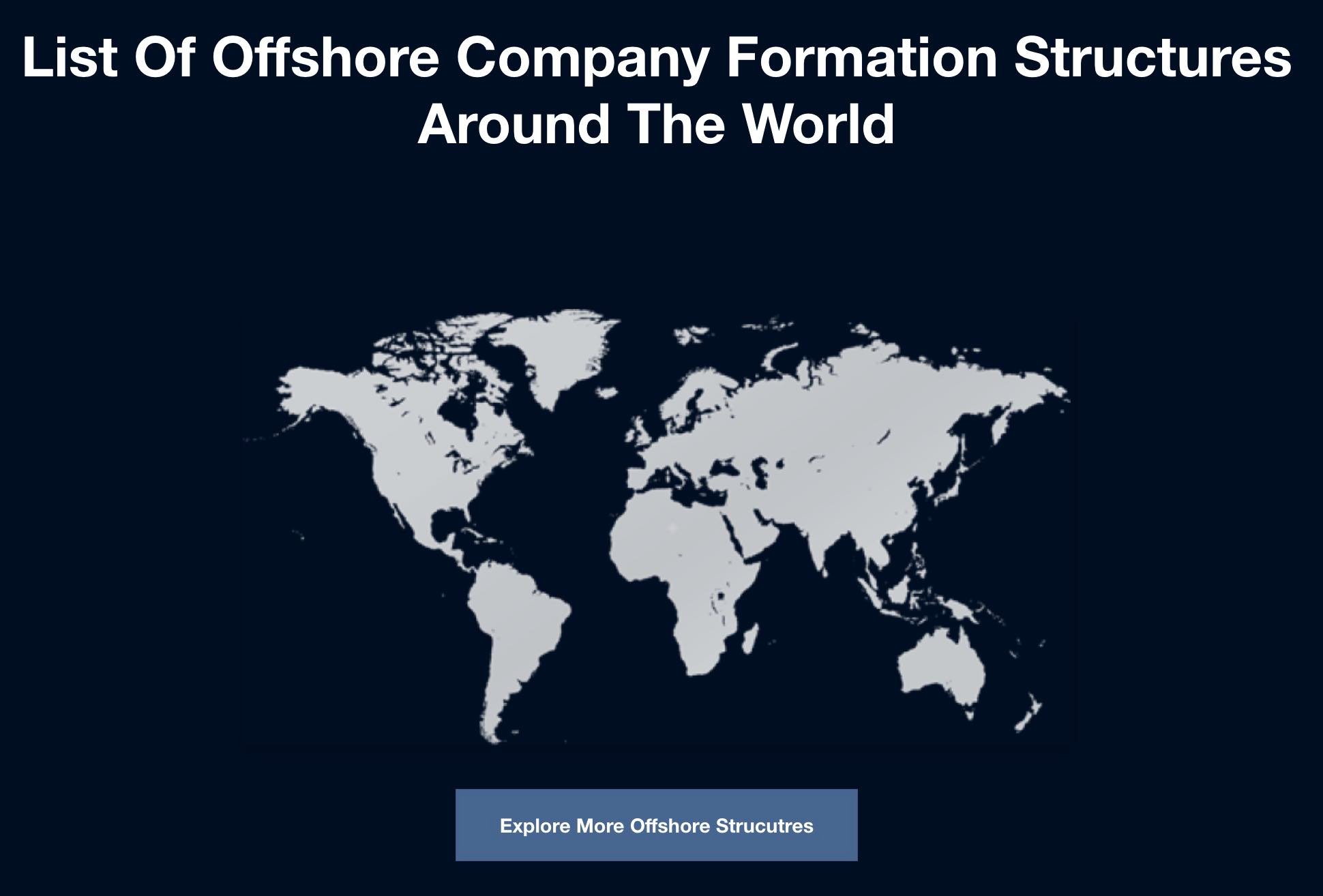Marshall Islands Company Formation: A Guide
- Last updated on . Written by Offshore Protection.
What is a Marshall Islands Non-Resident Domestic Corporation (NRDC)?
A Marshall Islands International Business Company (IBC), known as a Non-Resident Domestic Corporation (NRDC), is the country’s premier and most popular offshore company formation vehicle. Its high attractiveness is due to a number of unique advantages, giving Marshall Islands offshore companies an unprecedented array of business possibilities.
For example, a Marshall Islands’ company may be taken public, raise capital, carry out third-party trading, act as an investment advisor and conduct business in any activity except banking, trust, insurance or gaming.
Company Law
A Non-Resident Domestic Company is governed by the Business Corporations Act, which is under the Marshall Islands Associations Law of 1990, exempting all non-resident companies from having to pay any type of local taxes. The offshore jurisdiction has a modernized corporate law that combines elements from both the US and the UK, making it a first class offshore financial centre.
The Marshal Islands has outstanding asset protection legislation and has long declined to collaborate with the OECD on any tax information exchange agreements. Non-Resident Companies are also not required to file audited accounts, annual returns, or submit any financial records, details of its owners or any shareholder of the company, all the details of which are kept confidential.
Although the Marshall Islands jurisdiction is largely unknown, it remains one of the best offshore financial destinations in the Pacific. For more information on the Advantages of the Marshall Islands as an Offshore Financial Center, click here.
Key Takeaways
- The Marshall Islands IBC is a preferred vehicle for global business operations due to its advantageous legislative environment.
- Companies benefit from efficient incorporation processes, flexible corporate structures, and strong privacy protections.
- Tax neutrality and the absence of exchange controls offer significant financial advantages for Marshall Islands companies.
Overview of Marshall Islands Company Formation
The Marshall Islands offers a streamlined process for company formation, appealing to entrepreneurs and investors globally. Its International Business Company (IBC) model provides a corporate structure that is both flexible and privacy-oriented.
Benefits of Marshall Islands Incorporation
Incorporating in the Marshall Islands presents several advantages:
- Privacy: The identities of company owners and directors can be kept confidential.
- Taxation: Marshall Islands IBCs benefit from a tax-neutral environment.
- Simplicity: The process for setting up a company is straightforward and can be completed quickly.
- Flexibility: There are no residency requirements for directors or shareholders.
Marshall Islands International Business Company (IBC)
An IBC in the Marshall Islands is a popular choice for business owners due to:
- Efficiency: Corporate documents such as the Memorandum and Articles of Association can be prepared rapidly.
- Convenience: Submission of documents for registration and the opening of corporate bank accounts can be facilitated with minimal hassle.
Types of Companies in the Marshall Islands
The jurisdiction recognizes various corporate entities, primarily:
- International Business Company (IBC): An entity designed for non-resident businesses to operate internationally.
- Limited Liability Company (LLC): Suitable for small to mid-sized businesses, offering a structure which separates personal and company liabilities.
Each type of company requires at least one director and shareholder, who may be individuals or corporate entities from any nationality.
Legal Framework and Corporate Legislation
The Marshall Islands' corporate legislation is shaped by its Business Corporations Act and adherence to international standards. This framework is influenced by common law traditions, providing a structure for company formation and operations within the jurisdiction.
Business Corporations Act
The Business Corporations Act 1990 forms the cornerstone of corporate legislation in the Marshall Islands. It establishes the legal basis for the creation, operation, and dissolution of corporations. Key provisions include:
- Company Structure Choices: Entities can select from several corporate structures to best suit their business needs.
- Name Reservation: A process is in place for the reservation and approval of company names.
- Corporate Documentation: Preparation of essential documents such as the Memorandum and Articles of Association is mandatory.
- Registration Requirements: Submission of the aforementioned documents leads to formal registration of the company.
Under this Act, companies are required to adhere to the lawful practices for governance, reporting, and accountability.
Corporate Law and International Standards
The Marshall Islands' corporate law is designed to align with international standards, including those set by organizations such as the Organisation for Economic Co-operation and Development (OECD). The legal provisions ensure:
- Compliance: Companies must adhere to international legal standards, promoting transparency and reducing the risk of fraudulent activities.
- Competitiveness: The jurisdiction aims to maintain a competitive edge by providing a favorable legal environment for business, which includes tax incentives for non-resident companies not doing business within the Marshall Islands.
These frameworks and regulations together provide a comprehensive legal structure for corporations, aiming to balance business-friendly practices with international compliance and oversight.
Incorporation Process
The incorporation process for forming a company in the Marshall Islands is streamlined for efficiency. Key considerations during this process include understanding the procedural steps, timeline, and specific documentation required.
Registration Process and Timeline
The registration of a Marshall Islands company typically involves the following steps:
- Choose the company structure: Determining the appropriate corporate structure, such as an International Business Company (IBC) or a Limited Liability Company (LLC), is the initial step.
- Name reservation: The proposed company name must be unique and reserved.
- Preparation of documents: Preparing the Memorandum and Articles of Association or equivalent organizational documents is essential.
- Submission of documents: These documents must be submitted to the relevant authority, alongside any other required forms.
- Bank account opening: Establishing a corporate bank account is usually the final step after incorporation.
The timeline for completion of registration can be very efficient, with the potential for company incorporation to be completed in a matter of days provided all required documents are properly prepared and submitted.
Required Documentation for Incorporation
To incorporate a company in the Marshall Islands, one must furnish specific documents, which generally include:
- Memorandum and Articles of Association: Outlining the company’s structure and internal rules.
- Corporate Registration Forms: Including an application form and any relevant declarations.
- Due Diligence Documents: Identification and proof of address for directors, shareholders, and Ultimate Beneficial Owners (UBOs).
For different types of entities like IBCs or LLCs, the requirements may slightly differ, but the approach to the preparation and submission of required documentation remains consistent.
Advantages of a Marshall Islands Company Formation
- No taxes of any kind
- Tropical destination
- Only one Director is required
- Single ownership is possible
- Modern corporate legislation
- Flexible corporate structure
- No public register of company officers including Director Shareholder and Secretary
- Nominee services are available.
- Free re-domiciliation
- Low fees
- English is the official language
- Name of company can be in any language that uses the Latin alphabet
- Wide range of business possibilities
- Confidentiality ensured for Directors and beneficial owners
- No audited of account sis required
- No requirements to file accounts or annual accounts to the Government
- No tax information exchange agreements
- Meetings are not required
- No exchange controls
- Stable economic and political jurisdiction
- Highly reputable offshore market
- Many different types of shares are allowed to be issued
Shield Your Assets From Lawsuits And Lawyers. Explore How An Offshore Asset Protection Trust Can Safeguard Your Wealth.
Top Uses
- Asset management and protection
- Tax optimization
- Real Property Holding
- Holding securities and bank accounts
- Trust and estate planning
- International trade
- Holding patents and trademarks
- Holding vessels
Key Corporate Features
Incorporation Packages Includes
- Government Registration Fee (First year)
- Registered Office Address (First year)
- Registered Agent Services (First year)
- Company Secretarial Maintenance
- Certificate of Incorporation
- Memo & Articles of Association
- Appointment of 1st Directors
- Consent Actions of the BOD
- Share Certificates
- Register of Directors
- Register of Officers
- Register of Shareholders
- FREE Phone and/or email consultations
Learn How To Protect Your Assets With The Strongest Offshore Asset Protection Structure In The World.
Limited Liability and Asset Protection
Limited Liability: Investors in Marshall Islands companies enjoy limited liability, meaning their responsibility for the company's debts and obligations is restricted to the amount they have invested. This principle is fundamental to protecting personal assets and encourages investment by minimizing the financial risk to shareholders.
- Protection Mechanism:
- Separation of Assets: The personal assets of shareholders and managers are separate from those of the company.
- Risk Containment: Shareholders' exposure to financial loss is limited to their investment in the company.
Asset Protection: The corporate laws in the Marshall Islands are designed to provide strong protections for company assets. Strategies such as separating assets into different holdings or using legal entities for asset management can be effectively implemented.
- Features:
- Legal Deterrents: Potential legal barriers can deter legal action from third parties.
- Privacy: The laws provide privacy measures that help in shielding company assets from undue scrutiny.
Incorporating these features, the Marshall Islands stands out as a jurisdiction that supports the formation of flexible and secure corporate entities.
Corporate Taxation
In the arena of international business, the Marshall Islands offers attractive features concerning taxation and confidentiality for International Business Companies (IBCs). These features position the Marshall Islands as a favorable jurisdiction for those prioritizing fiscal efficiency and privacy.
Tax Exempt Status for IBCs
International Business Companies (IBCs) registered in the Marshall Islands benefit from a zero-tax structure. IBCs are exempt from local taxation on their income, irrespective of whether it is generated inside or outside the jurisdiction. This exemption includes but is not limited to:
- Corporate tax
- Income tax
- Withholding tax
- Capital gains tax
- Stamp duties
Resident companies, however, are subject to a progressive tax rate. An initial fixed tax of $80 applies to the first $10,000 of income, followed by a 3% tax on any income over that threshold. This distinction underscores the strategic advantage for businesses opting to establish as IBCs in the Marshall Islands.
Privacy and Anonymity for Beneficial Owners
The Marshall Islands upholds stringent confidentiality laws that extend to the identities of company owners and directors. These laws enable:
- The formation of companies where beneficial owners remain anonymous
- Protection against revealing the identities in public registries
Such measures ensure a high level of privacy, making the jurisdiction particularly appealing for individuals and entities valuing discretion in their business operations. The confidential nature of the registry for beneficial owners in the Marshall Islands is a key consideration for stakeholders in global finance.
Corporate Details
Anonymity, Confidentiality and Disclosure
A non-resident domestic company has complete confidentiality, does not need to be submitted to the government and is not open to the public. All beneficial owners, directors and shareholders can maintain anonymity through the use of nominee services. The names of the beneficial owner and director(s) are required to be filed with the Registered Agent, though those names and contact details are held confidentially. No financial documents, statements, accounts or audits are required to be submitted to the government.
Company Shares
Companies formed in the Marshall Islands may use registered, preference, redeemable shares, with or without par value and with or without voting rights.
Required Capital
The minimum issued share capital for a non-resident company is one share, with a usual authorized amount of US$50,000, that is usually expressed as 500 shares without par value, which may be in any currency.
Financial Statements Required
There are no requirements to submit any financial statements; however, a company must keep financial statements, accounts and records of the companies business standing, financials, and records. They may be held anywhere in the world.
Director
A Marshal Islands IBC requires only one Director who may be an individual or a corporate body, may be a resident of any country and any nationality
Company Secretary
A Company Secretary is required for a Marshall Islands IBC. A Secretary can either be an individual or a corporate body and does not need to be local resident.
Company Meetings
Company meetings may be held anywhere in the world and are not required for a Marshall Islands IBC.
Principal Corporate Legislation
Company incorporation and formation of non-resident companies is under the jurisdiction of the Association Law of the Republic of Marshall Islands 1990, which includes:
- Business Corporations Act
- Limited Partnership Act
- Limited Liability Company Act
- Partnership Act (revised)
Type of Law
The Republic of the Marshall Islands has a mixed legal system, with elements of laws from the United States and the United Kingdom, combined with local statues. Corporate and companies law are primarily modelled after Delaware and NY corporate law.
Shareholders
A Non-Resident Domestic Corporation requires that there be at least one (1) shareholder who may either be an individual or a corporate body, may be of any nationality and resident of any country.
Trading Restrictions
A Marshall Islands IBC is not allowed to trade within the country.
Exchange Controls
There are no exchange controls in Marshall Islands
Powers of the Company
The powers of the company have the same powers as a natural person.
Registered Office Required
Yes, Marshall Island company incorporation requirements state that a local, registered office is mandatory for every non-resident company
Local Presence
There are no local requirements except for a registered office
Audit Requirements
There are no audit requirements needed for a Non-Resident domestic corporation
Annual Reporting
There are no annual reporting requirements for a Marshall Islands IBC
Shelf Companies Available
Yes, shelf companies are readily available.
Time Required to Form Offshore Company
1-3 Business days
Name Restrictions
Any company name that is already in use or is deemed offensive or undesirable by the Register may not be used. The following words may also not be used, unless the company receives special permission from the Register; these include: trust, partnership, gaming, foundation, bank, insurance, or establishment.
Language of Name
A Marshall Islands IBC may be in any language as long as it uses the Roman alphabet and provides an English translation.
Names of Company Requiring a Special Licence or Permission
The following words may also not be used, unless the company receives special permission from the Register; these include: bank, insurance, trust and gaming.
Permitted Limited Liability Suffixes
A Company must use the appropriate suffix “Corp”, “Ltd”, “S.A.”, or “PLC”
Access to Double Tax Treaties
The Republic of the Marshall Islands has not signed any Double Tax Treaties
Minimum Annual Government Tax
US $450
Frequently Asked Questions
What are the requirements for forming a company in the Marshall Islands?
A company in the Marshall Islands must have at least one director and one shareholder, which can be individuals or corporate entities. The shareholders' liability is limited to the amount they have invested in shares. There is also a standard share structure for a company, which typically comprises 500 registered shares without par value or up to US$50,000 of par value stock.
How can one obtain a forex license in the Marshall Islands?
Currently, the provided search results do not include specific information on obtaining a forex license in the Marshall Islands. For accurate and updated regulations, one should consult directly with the relevant Marshall Islands authorities or a licensed attorney experienced in this area.
What is the process for incorporating a company in the Marshall Islands?
To incorporate a company in the Marshall Islands, one begins by choosing the company structure. Next, they must reserve a company name and prepare corporate documents such as the Memorandum and Articles of Association. These documents are then submitted for registration, and upon approval, the company can proceed with opening a corporate bank account.
How can I find a registered agent for my Marshall Islands company?
A registered agent can be found through specialized service providers that offer company formation services in the Marshall Islands. These agents are responsible for facilitating the incorporation process and ensuring legal compliance with local regulations.
What are the advantages of registering a company in the Marshall Islands?
Registering a company in the Marshall Islands offers advantages such as confidentiality, a simplified incorporation process, and low annual fees. Additionally, the jurisdiction does not impose taxes on income, dividends, interests, rents, royalties, and compensations.
How can I open a bank account for my company in the Marshall Islands?
Opening a bank account for a Marshall Islands company typically involves submitting the necessary identification documents and choosing an appropriate bank. A registered agent may offer services to aid in this process, including the setup of eBanking and credit card facilities by correspondence.
For professional assistance with establishing your Marshall Islands company, Offshore Protection offers comprehensive incorporation and structuring services tailored to your business needs. Our experienced team can guide you through every step of the process.
Offshore Protection
Join thousands of satisfied clients who have experienced the Offshore Protection advantage for more than 25 years. When you purchase any of our offshore company formation products, you'll get FREE support from our lawyers to help answer your overseas company day-to-day management questions..
Start the Marshall Islands Incorporation process with Offshore-Protection today. Order a Marshall Islands IBC with or without a bank account.














